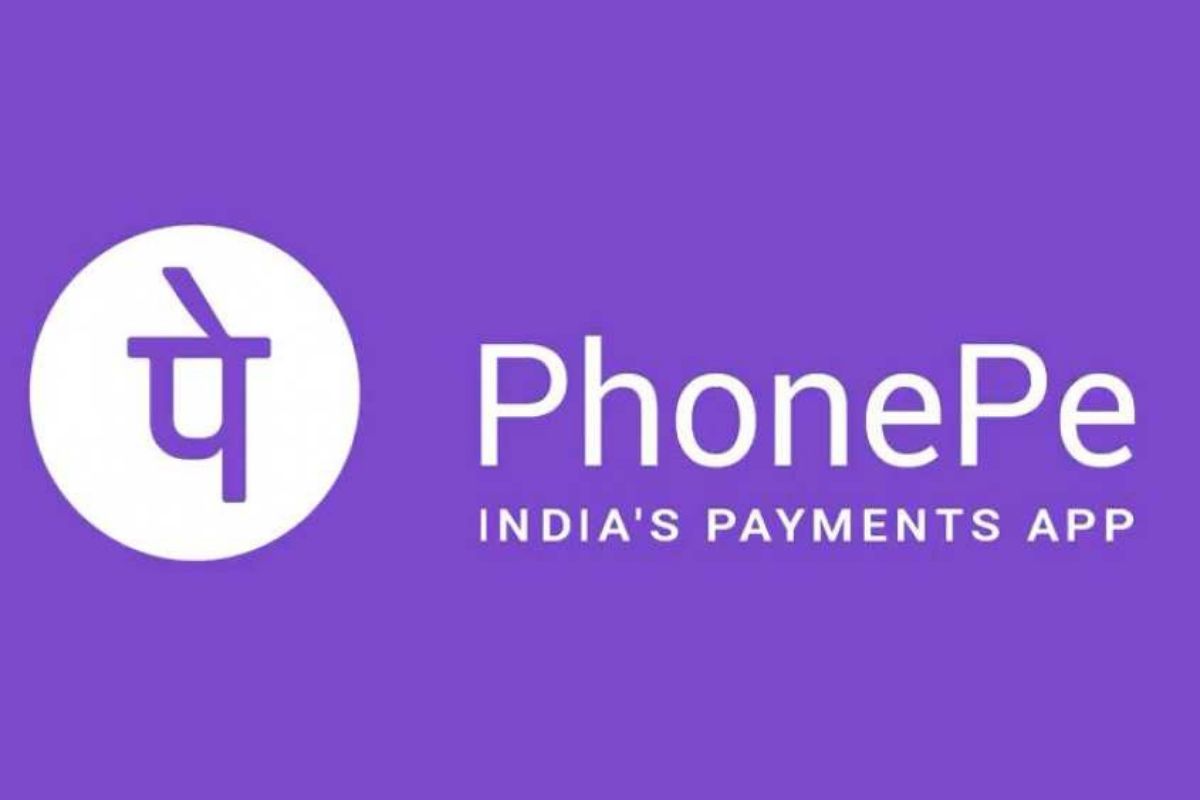Top 10 Best Consumer Tech Companies in India 2024

Introduction
India, with its vast population and growing middle class, has emerged as a fertile ground for consumer technology companies. These enterprises have been at the forefront of the digital revolution, leveraging technology to transform various aspects of daily life for Indian consumers. From e-commerce giants and digital payment platforms to innovative startups, India’s consumer tech companies have showcased remarkable ingenuity and agility in meeting the diverse needs of their vast customer base. This article delves into the thriving landscape of consumer tech companies in India, exploring their evolution, key players, and impact on the Indian market.
- The Evolution of Consumer Tech Companies in India
The rise of consumer tech companies in India can be attributed to several factors. First and foremost, the proliferation of smartphones and affordable internet connectivity has opened up access to digital services for millions of Indians. This digital revolution created a ripe environment for the growth of tech-savvy startups and established corporations alike. Additionally, the Indian government’s focus on promoting digital initiatives, such as “Digital India,” has further accelerated the adoption of technology across the nation.
- Key Players in the Indian Consumer Tech Landscape
- E-commerce Giants:
India’s e-commerce sector has witnessed a remarkable transformation over the years, with giants like Flipkart and Amazon India dominating the market. Flipkart, founded in 2007, rapidly became one of India’s most prominent online marketplaces. In 2018, American retail giant Walmart acquired a majority stake in Flipkart, highlighting the immense potential of the Indian e-commerce market. Amazon India, the Indian arm of the global e-commerce behemoth, has also made significant strides and fierce competition with Flipkart.
- Digital Payment Platforms:
The digital payment industry in India has experienced explosive growth, primarily driven by demonetization in 2016 and the Unified Payments Interface (UPI) platform launched by the National Payments Corporation of India (NPCI). Companies like Paytm, founded in 2010, emerged as pioneers in the digital payment space. Other players such as Google Pay, PhonePe, and Amazon Pay have since entered the market, leading to intense competition and driving innovation in the sector.
- Ride-hailing and Mobility Solutions:
Ride-hailing services like Ola and Uber have revolutionized urban transportation in India. Ola, founded in 2010, is an Indian ride-hailing company that has expanded its services to include Ola Auto, Ola Bike, and Ola Electric. Uber, a global ride-hailing giant, entered the Indian market in 2013 and has since become a key player in the country’s transportation sector.
- Food Delivery Apps:
The rise of food delivery apps has transformed the way Indians order food. Swiggy and Zomato are prominent players in this space. These apps offer a wide variety of cuisines and quick delivery services, catering to the fast-paced urban lifestyle.
- Consumer Electronics Startups:
India has witnessed the emergence of several consumer electronics startups that focus on creating innovative and affordable products. Companies like boAt, which specializes in audio accessories, and Xiaomi, known for its smartphones and smart home devices, have gained immense popularity among Indian consumers.
- Impact on the Indian Market
The influence of consumer tech companies on the Indian market cannot be overstated. These companies have disrupted traditional business models, empowered consumers with convenient services, and contributed significantly to the digital economy.
- Job Creation and Skill Development:
The rapid expansion of consumer tech companies has created numerous job opportunities across various sectors, including technology, logistics, and customer support. Additionally, these companies have played a crucial role in nurturing tech talent in India, fostering skill development and technological innovation.
- Digital Inclusion:
Consumer tech companies have played a vital role in bridging the digital divide in India. Their user-friendly interfaces and affordable services have encouraged even those with limited digital literacy to embrace technology for their day-to-day needs.
- Boosting Entrepreneurship:
The success stories of Indian consumer tech startups have inspired a new wave of entrepreneurship in the country. Young innovators and aspiring entrepreneurs are now more encouraged to take risks, develop innovative solutions, and bring them to market.
The top 10 consumer tech companies in India, their contributions, and the impact they have made on the Indian market are listed below:
- Flipkart

Founded in 2007 by Sachin Bansal and Binny Bansal, Flipkart is one of India’s most prominent e-commerce platforms. It started as an online bookstore and quickly expanded its product range to include electronics, fashion, home essentials, and more. Flipkart’s innovative approach, including the introduction of cash-on-delivery and robust supply chain management, revolutionized online shopping in India. In 2018, Walmart acquired a majority stake in Flipkart, valuing the company at over $20 billion.
The company played a pivotal role in transforming the shopping habits of Indian consumers, providing them with a digital platform to access a vast array of products at competitive prices. Moreover, Flipkart’s introduction of innovative features like cash-on-delivery and hassle-free returns helped build trust among customers, especially those who were initially hesitant about online shopping.
The company’s robust supply chain and logistics infrastructure ensure timely and efficient deliveries even to remote locations, further expanding its reach. In 2018, the acquisition of a majority stake by Walmart validated Flipkart’s significant impact on the Indian market and highlighted its immense potential.
As a pioneer in the e-commerce space, Flipkart continues to leverage technology to enhance customer engagement and foster a seamless shopping experience, solidifying its position as a key player in India’s consumer tech landscape.
- Paytm

Launched in 2010 by Vijay Shekhar Sharma, Paytm has become a household name in India’s digital payment landscape. Initially started as a mobile recharge platform, Paytm expanded its services to include bill payments, ticket booking, and e-commerce. The company’s success skyrocketed after the demonetization move in 2016, which led to a surge in digital payments. With the introduction of Paytm Wallet and UPI-based services, Paytm became one of the leading digital payment platforms in India.
Paytm’s success can be attributed to its user-friendly interface and innovative features, such as the Paytm Wallet and the integration of the Unified Payments Interface (UPI). These advancements made digital payments accessible and convenient for millions of Indians, especially during the demonetization drive in 2016 when cashless transactions surged.
Paytm’s continuous innovation and strategic partnerships with various merchants further enhanced its usability, allowing users to pay for groceries, utilities, movie tickets, and even book travel and accommodation.
The platform’s foray into e-commerce with Paytm Mall extended its reach, offering a diverse range of products and enticing deals to customers. Additionally, the company’s investment in Paytm Payments Bank provided a seamless digital banking experience for users, combining payment services with banking facilities.
As a pioneer in India’s digital payment ecosystem, Paytm has played a pivotal role in driving financial inclusion and empowering millions of Indians with the ease and convenience of digital transactions. The company’s commitment to innovation and its ever-expanding array of services continue to make it a trusted and indispensable part of the daily lives of consumers across the country.
- Ola

Founded in 2010 by Bhavish Aggarwal and Ankit Bhati, Ola is India’s largest ride-hailing platform. The company offers various mobility solutions, including city taxis, auto-rickshaws, and rental cabs. Ola’s user-friendly app and competitive pricing have made it a popular choice for millions of Indian commuters. The company has also ventured into electric mobility and has piloted Ola Electric, focusing on electric vehicles and charging infrastructure.
The company’s user-friendly mobile app allows customers to book a wide range of mobility options, including city taxis, auto-rickshaws, and rental cabs, all at their fingertips. Ola’s success can be attributed to its commitment to providing safe, reliable, and affordable transportation solutions to a diverse customer base.
One of Ola’s key strengths is its focus on innovation and adaptation to the evolving needs of consumers. The company has continuously introduced new features and services to enhance user experience. For instance, Ola Share, launched in 2015, encourages carpooling, reducing congestion on roads and promoting eco-friendly commuting. Additionally, Ola’s Ola Electric initiative aims to revolutionize urban mobility by promoting the adoption of electric vehicles.
Ola’s commitment to customer safety is evident through various measures such as GPS tracking of rides, emergency assistance, and stringent driver verification processes. The company’s dedication to customer satisfaction has garnered a loyal and growing user base.
Moreover, Ola’s expansion into multiple cities across India and its foray into international markets have solidified its position as a global mobility solutions provider. The company’s willingness to diversify its offerings, including introducing Ola Food Delivery and Ola Money, reflects its commitment to becoming a comprehensive consumer tech platform.
The company’s contribution to digital transformation and its focus on sustainable transportation have made it a significant player in India’s consumer tech landscape, reflecting the remarkable potential of technology to transform everyday lives.
- Swiggy

Swiggy, established in 2014 by Sriharsha Majety, Nandan Reddy, and Rahul Jaimini, is a food delivery platform that has transformed the way Indians order food. The company’s extensive restaurant network, quick deliveries, and innovative features like “Swiggy POP” (affordable single-serve meals) have propelled its success. Swiggy’s user-friendly app and focus on customer satisfaction have made it one of the leading players in India’s food delivery industry.
- Zomato

Zomato, founded in 2008 by Deepinder Goyal and Pankaj Chaddah, is another major player in India’s food delivery and restaurant discovery segment. Initially started as a restaurant review platform, Zomato expanded its services to include food ordering and delivery. The company’s comprehensive database of restaurants, user reviews, and loyalty programs have contributed to its widespread popularity among Indian consumers.
Zomato, a leading consumer tech company in India, has made a profound impact on the way Indians discover and order food. Founded in 2008 by Deepinder Goyal and Pankaj Chaddah, Zomato started as a restaurant discovery platform and quickly evolved into a comprehensive food delivery service. The company’s user-friendly app and website allow users to explore a vast database of restaurants, read reviews, view menus, and make informed choices based on their preferences.
Zomato’s success can be attributed to its relentless focus on customer experience and continuous innovation. The platform’s intuitive interface, coupled with accurate restaurant recommendations and ratings, has helped users discover new dining options and make dining decisions with ease. Additionally, Zomato’s loyalty program and cashback offers have incentivized customers to use the platform frequently.
In 2015, Zomato expanded its services by venturing into food delivery, a move that significantly contributed to its growth and market dominance. The company’s efficient delivery network and timely service have made it a go-to option for millions of Indians seeking convenient and reliable food delivery.
Furthermore, Zomato’s expansion into various international markets has cemented its position as a global player in the food tech industry. Acquisitions and strategic partnerships with local players have facilitated its growth and solidified its presence in multiple countries.
Zomato’s commitment to technological innovation is evident through its AI-driven features that offer personalized restaurant recommendations and user-specific content. The company’s efforts to support restaurants and food establishments by providing digital solutions, such as online ordering and table reservation services, have further strengthened its relationship with the food industry.
Zomato’s success story extends beyond its consumer-facing services. It has also delved into hyperlocal advertising, generating revenue by promoting restaurants and cafes on its platform. This move has not only diversified its revenue streams but also provided businesses with a powerful marketing channel to reach their target audience effectively.
The company’s ability to leverage technology to transform the food industry and enhance the dining experience for millions of users has firmly established it as a key player in India’s digital economy.
- PhonePe

Launched in 2015, PhonePe is a digital payment platform that quickly gained traction in India’s competitive fintech space. Founded by Sameer Nigam, Rahul Chari, and Burzin Engineer, PhonePe gained a massive user base by offering seamless UPI-based transactions, cashback offers, and utility bill payments. The company’s partnership with Flipkart has further enhanced its user reach and engagement.
As a UPI-based platform, PhonePe allowed users to link their bank accounts and perform quick and secure transactions, eliminating the need for traditional payment methods.
One of PhonePe’s major strengths is its versatility and extensive range of services. In addition to person-to-person (P2P) transfers, the platform enables users to pay bills, recharge mobiles, book flights and hotels, purchase insurance, and even invest in mutual funds, all within a single app. This comprehensive approach has turned PhonePe into a one-stop solution for various financial needs, enhancing its appeal among users.
The introduction of the “Switch” platform allowed users to access a wide range of apps and services, seamlessly integrating them into the PhonePe app. This innovative move transformed PhonePe from just a payment app to a super app, offering various utilities and services in one place.
It collaborates with online and offline businesses, enabling users to make digital payments for purchases at various retail outlets and e-commerce platforms. This extensive network has contributed to the widespread adoption of PhonePe as a preferred payment method across India.
Security has been a top priority for PhonePe, and the company employs robust encryption and authentication measures to ensure the safety of transactions and user data. This approach has earned users’ trust and helped PhonePe build a loyal customer base.
The company’s growth trajectory has been impressive, and it became the first UPI-based payments app to reach one billion transactions in a single month. This milestone reflects the platform’s immense popularity and acceptance among Indian consumers.
The platform has empowered millions of Indians, including those in remote areas, to access and utilize digital payment services conveniently.
PhonePe’s continued focus on innovation, user-centric approach, and commitment to simplifying financial transactions have firmly established it as a leading consumer tech company in India. Its impact on the digital payments ecosystem and the transformation of the way Indians handle financial transactions underline its status as a key player in India’s digital revolution.
- Xiaomi

Xiaomi, a Chinese electronics company, entered the Indian market in 2014 and quickly established itself as a dominant player in the smartphone and smart devices segment. Known for its high-quality products at competitive prices, Xiaomi, led by Manu Kumar Jain, disrupted the Indian smartphone market and garnered a significant market share. The company’s wide range of products, including smartphones, smart TVs, wearables, and smart home devices, has resonated well with Indian consumers.
The company’s strategy of offering high-quality smartphones and smart devices at competitive prices resonated well with the price-conscious Indian market.
Xiaomi’s smartphones, known for their impressive features and budget-friendly pricing, disrupted the Indian smartphone industry. The company’s MIUI user interface provided a customized experience for users, and frequent software updates enhanced the overall user experience. Xiaomi’s flash sales and exclusive online partnerships further contributed to its appeal, creating a buzz around each product launch.
Beyond smartphones, Xiaomi expanded its portfolio to include a wide range of consumer electronics and smart home devices. Products such as Mi TV, Mi Band, Mi Air Purifier, and Mi True Wireless Earphones have gained widespread popularity for their quality and affordability.
Xiaomi’s focus on its MIUI ecosystem has helped it build a loyal fan base in India. The company has also invested in localized services and customer support to cater to the unique needs of the Indian market.
The “Make in India” initiative has been a key component of Xiaomi’s growth strategy, with the company setting up manufacturing units in the country to produce smartphones and other devices. This move not only contributed to the Indian economy but also helped Xiaomi offer its products at even more competitive prices.
Overall, Xiaomi’s combination of innovation, affordability, and user-centric approach has established it as a prominent consumer tech company in India. Its commitment to continuously providing value to customers through new products and features solidifies its position as a key player in India’s consumer tech landscape.
- Amazon India

Amazon, the global e-commerce giant, launched its Indian marketplace in 2013. Led by Amit Agarwal, Amazon India has been in fierce competition with Flipkart for dominance in the Indian e-commerce market. The company’s vast product selection, aggressive pricing, and efficient delivery network have contributed to its success in India.
The platform’s user-friendly interface, seamless shopping experience, and efficient delivery network have contributed to its massive popularity among Indian consumers.
Amazon’s extensive product range, competitive pricing, and reliable delivery services have transformed the way Indians shop. The company’s focus on customer satisfaction and its commitment to providing a seamless shopping experience has earned it a loyal customer base.
Amazon India’s adoption of innovative technologies, such as AI-powered recommendation engines and smart logistics solutions, has further enhanced the customer experience. The platform’s “Amazon Prime” membership program, offering benefits like free and faster delivery, exclusive deals, and access to video streaming content, has added to its appeal.
The program enables Indian businesses, including small and medium-sized enterprises (SMEs), to reach a wider audience and sell their products on the platform, thus contributing to economic growth and job creation.
The company’s efforts to cater to the unique needs of the Indian market, such as introducing Hindi language support and offering localized products and services, have further solidified its position as a preferred destination for online shopping in India.
Through its strategic acquisitions and partnerships, Amazon India has expanded into new areas, including digital payments, entertainment, and grocery delivery. These moves reflect the company’s adaptability and determination to stay at the forefront of India’s dynamic consumer tech landscape.
As a pioneer in the e-commerce space in India, Amazon has played a pivotal role in shaping consumer behavior and driving the growth of digital commerce in the country. Its continuous focus on technology, customer satisfaction, and innovation has positioned it as a leading consumer tech company, contributing significantly to India’s digital transformation.
- Google Pay (Tez)
Google Pay, formerly known as Tez, is a digital payment app launched by Google in 2017. Built on the UPI platform, Google Pay quickly gained popularity due to its simplicity and seamless integration with Google services. With a user base of millions, the app, led by Ambarish Kenghe, has become a prominent player in India’s digital payment ecosystem.
Google Pay’s simple and intuitive user interface, combined with its robust security features, has made it a popular choice among millions of Indian users.
Google Pay’s strategic partnerships with businesses and integration with various platforms have expanded its usability and convenience, making it an essential tool for everyday financial transactions.
Furthermore, the platform’s cashback offers, scratch cards, and rewards programs have incentivized users to adopt digital payments and engage more frequently with the app.
The platform’s emphasis on security and privacy has helped build trust among users. It employs multiple layers of encryption and authentication to protect user data and transactions. Google Pay’s integration with biometric authentication methods, such as fingerprint and facial recognition, adds an extra layer of security, ensuring a safe and reliable payment experience for users.
Google Pay’s contribution to financial inclusion in India is significant, as it empowers even those with limited access to traditional banking services to transact digitally. The platform’s multilingual support and its focus on catering to the diverse needs of Indian users have made it accessible to a broader audience, irrespective of their language or location.
Its continuous efforts to innovate, expand its services, and enhance user experience have solidified its position as a prominent consumer tech platform, shaping the future of digital payments in India.
- Reliance Jio Info comm

Reliance Jio, a subsidiary of Reliance Industries Limited, entered the Indian telecom market in 2016 and disrupted the industry with its aggressive pricing and data-centric approach. Led by Mukesh Ambani, Jio’s affordable data plans and extensive 4G network coverage revolutionized internet access in India. The company’s foray into digital services, including JioMart (e-commerce), JioSaavn (music streaming), and JioCinema (video-on-demand), has further diversified its offerings and customer base.
Jio’s aggressive pricing strategy, offering free voice calls and data at incredibly low prices, led to a massive surge in internet adoption among Indians. This move, coupled with the “Jio Welcome Offer,” provided users with free services during its initial phase, creating a massive user base within a short span.
Additionally, Jio’s foray into digital services includes JioMart, an e-commerce platform for groceries, and JioCinema and JioSaavn, offering video and music streaming services, respectively.
Jio’s contribution to the digital payments landscape is also noteworthy with the introduction of JioMoney and partnerships with leading digital payment platforms. The company’s focus on creating a comprehensive digital ecosystem has made it an essential part of millions of Indian consumers’ daily lives.
Jio’s commitment to innovation is evident through its advancements in technology, including the development of indigenous 5G solutions. The company’s investments in emerging technologies like artificial intelligence and IoT have positioned it at the forefront of India’s tech revolution.
Furthermore, Jio’s “Digital India” initiatives, such as the JioPhone, a budget-friendly feature phone with 4G capabilities, have played a crucial role in bridging the digital divide and empowering users from all segments of society to embrace technology.
Jio’s relentless pursuit of technological excellence and its commitment to providing affordable, high-quality services have firmly established it as a major player in India’s consumer tech landscape, shaping the country’s digital future.
Conclusion
India’s consumer tech companies have transformed the way people live, work, and engage with digital services. From e-commerce and digital payments to ride-hailing and food delivery, these companies have displayed remarkable innovation and adaptability in meeting the needs of India’s diverse and tech-savvy population. With the continuous growth of the digital economy, these top 10 consumer tech companies will continue to shape India’s technological landscape and contribute to its journey toward a digital-first nation.




